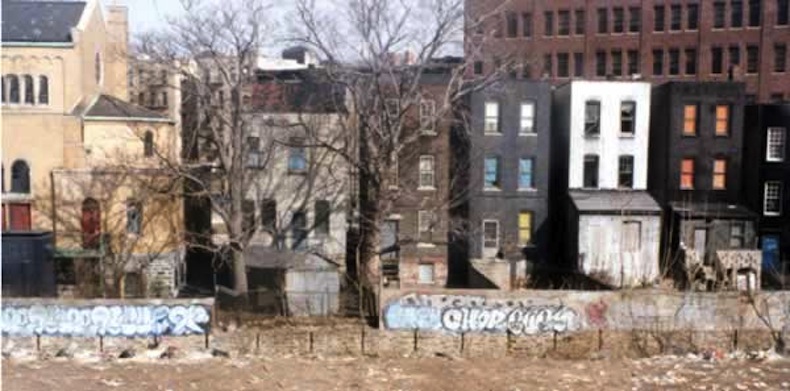Including the Poor in the Reclamation Process

But must gentrification always spell displacement for the poor? To some degree, yes. Yet displacement is not entirely bad. There are drug dealers and other rogues that need to be dislodged from a community if it is going to become a healthy place to raise children. Over-crowded tenements and flop houses should be thinned out or cleaned up and this inevitably means displacement of some of the vulnerable along with their predators. Bringing responsible property management back into a neglected community does spell disruption for those who have chosen or been forced by necessity to endure slumlord economics. But what may be disruptive for the moment can become a blessing for those who yearn for a better way of life if – and this is a big if – the poor are included in the reclamation process by the returning gentry.
Opal forced me to look squarely into face this big if. Housing had not been on my radar screen when I moved into the city. It was not part of my ministry game plan. But neither could I sit passively in a prayer circle asking God to help my sister Opal knowing that my well-intentioned move was working to her detriment, knowing too that the same thing was about to happen over and over again to more of my church members and neighbors. And so I reordered my priorities. In addition to my church planting and mercy ministry strategy, I ventured into the arena of justice. I rallied suburban church partners to come to Opal’s aid, bought and restored her house and structured a loan that enabled her to become a homeowner. Then as my property value went up, so did hers. She became vested. Opal’s house became for me a modern day parable of “good news to the poor.†Many of those who volunteered their time and skills to transform her home were deeply moved as they cared for a widow in this personal and practical way. They asked if there were other Opal’s in our church. Indeed there were. The end result was the creation of a housing division within our ministry that has mobilized thousands of volunteers and enabled hundreds of Opals to become homeowners in our community.
Gentrification with justice – that’s what is needed to restore health to our urban neighborhoods. Needed are gentry with vision who have compassionate hearts as well as real estate acumen. We need gentry whose understanding of community includes the less-advantaged, who will use their competencies and connections to ensure that their lower-income neighbors share a stake in their revitalizing neighborhood. The city needs land-owning residents who are also faith-motivated, who yield to the tenets of their faith in the inevitable tension between value of neighbor over value of property. That is why gentrification needs a theology to guide it.
**************************
This is Part 3 of a 6-part series on community development, justice and gentrification by Bob Lupton. Stay tuned to Verge Network every Friday for the remaining parts of this series of articles.Â
Bob Lupton has invested almost 40 years of his life in inner-city Atlanta. In response to a call that he first felt while serving in Vietnam, he left a budding business career to work with delinquent urban youth. Bob and his wife Peggy and their two sons sold their suburban home and moved into the inner-city where they have lived and served as neighbors among those in need. Their life’s work has been the rebuilding of urban neighborhoods where families can flourish and children can grow into healthy adults.
Bob is a Christian community developer, an entrepreneur who brings together communities of resource with communities of need. Through FCS Urban Ministries – a non-profit organization which he founded – he has developed two mixed income subdivisions, organized a multi-racial congregation, started a number of businesses, created housing for hundreds of families and initiated a wide range of human services in his community. He is the author of the books Theirs in the Kingdom, Return Flight, Renewing the City, Compassion, Justice and the Christian Life and the widely circulated “Urban Perspectivesâ€, monthly reflections on the Gospel and the poor. Bob has a Ph.D. in psychology from the University of Georgia. He serves as speaker, strategist, and inspirer with those throughout the nation who seek to establish God’s Shalom in the city.


